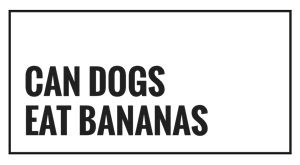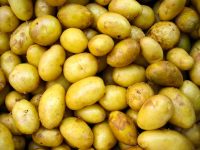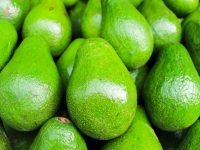With different pears ripening in different months, there is an excellent stretch of time to sample a variety of the juicy and delicious fruit. But how does this fruit fare for canines? Are pears good for dogs? Today we will explore the benefits and risks of giving pears to man’s best friend.
Can Dogs Eat Pears?
We know by now that there are a number of safe fruits for dogs to eat. Apples, bananas, blueberries, and watermelon are among some of the highest ranked fruits for dogs. But do canines have pear-mission to eat pears as well?
Luckily for pet owners who are fond of pears, the American Kennel Club (AKC) rules pears to be a safe fruit for dogs. This means that as long as you serve pears properly, dogs are free to enjoy this fall fruit favorite.
How Are Pears Good for Dogs?
Dogs are given the green light to enjoy pears. But how are pears good for dogs to snack on? The AKC credits pears with being a healthy snack that has plenty of vitamin C, vitamin A, and fiber.
Vitamin C is essential for growth, repair, and development of body tissues. It also assists in a number of body functions, including wound healing, iron absorption, and immune system health to name a few.
Meanwhile, vitamin A helps eyesight and supports immune system and bone health. Lastly, fiber is essential for digestive health. It also prevents blood glucose levels from rising too quickly.
Pears also earn points for being low in fat and calories. The USDA estimates that one medium pear has approximately 102 calories. Since your dog is only eating a slice or two of the entire fruit, this makes it a very low-calorie snack.
An entire pear also only contains 0.2 grams of fat. This also makes pears a great substitution for fatty, processed treats.
How to Serve Pears to Pups
Remember, even though pears are non-toxic for dogs and considered safe, moderation is key to maintaining a healthy dog. Don’t serve pears too frequently. Also make sure to serve appropriate amounts of the food based on the size of you pup. Obviously larger dogs are free to enjoy a few more slices than miniature dogs.
If you have an especially tiny dog, a slice of pear should suffice as a satisfying snack. Make sure to start your dog off with very small servings and monitor her reaction for any signs that she is not compatible with pears. If your dog experiences digestion issues from the fruit, pears might not be the best snack choice.
What about serving your dog canned pears? Unsurprisingly, canned pears are not canine-approved. Canned pears, like most canned fruits, contain too much sugar to be safe for dogs. Always serve your dog the fresh fruit option and consult your vet before introducing new foods.
Understanding Pear Risks
Before we wrap things up, let’s discuss a few more pear concerns. After all, seeing your dog in pain is absolutely un-pear-able. (I promise I’m almost done with my pear puns.)
The main concern of dogs eating pears is choking hazards. In order to prevent canine choking, cut pear servings into bite-sized pieces. Additionally, the seeds of pears actually contain small amounts of cyanide. In order to prevent your dog from eating any seeds, never give him the pear core.
Lastly, be aware that your dog will likely get an upset stomach from eating too much pear. To play it safe, always keep your dog’s treat intake at 1o percent or less of his daily food intake.
To (Pear)aphrase
Let’s see what we’ve learned in today’s fruit analysis. Are pears good for dogs? Yes, pears are a healthy snack for dogs. Just be sure to serve the pear safely to prevent choking and limit your dog’s fruit servings.
To read about more fruits for dogs, check out how apples are good for dogs.


















